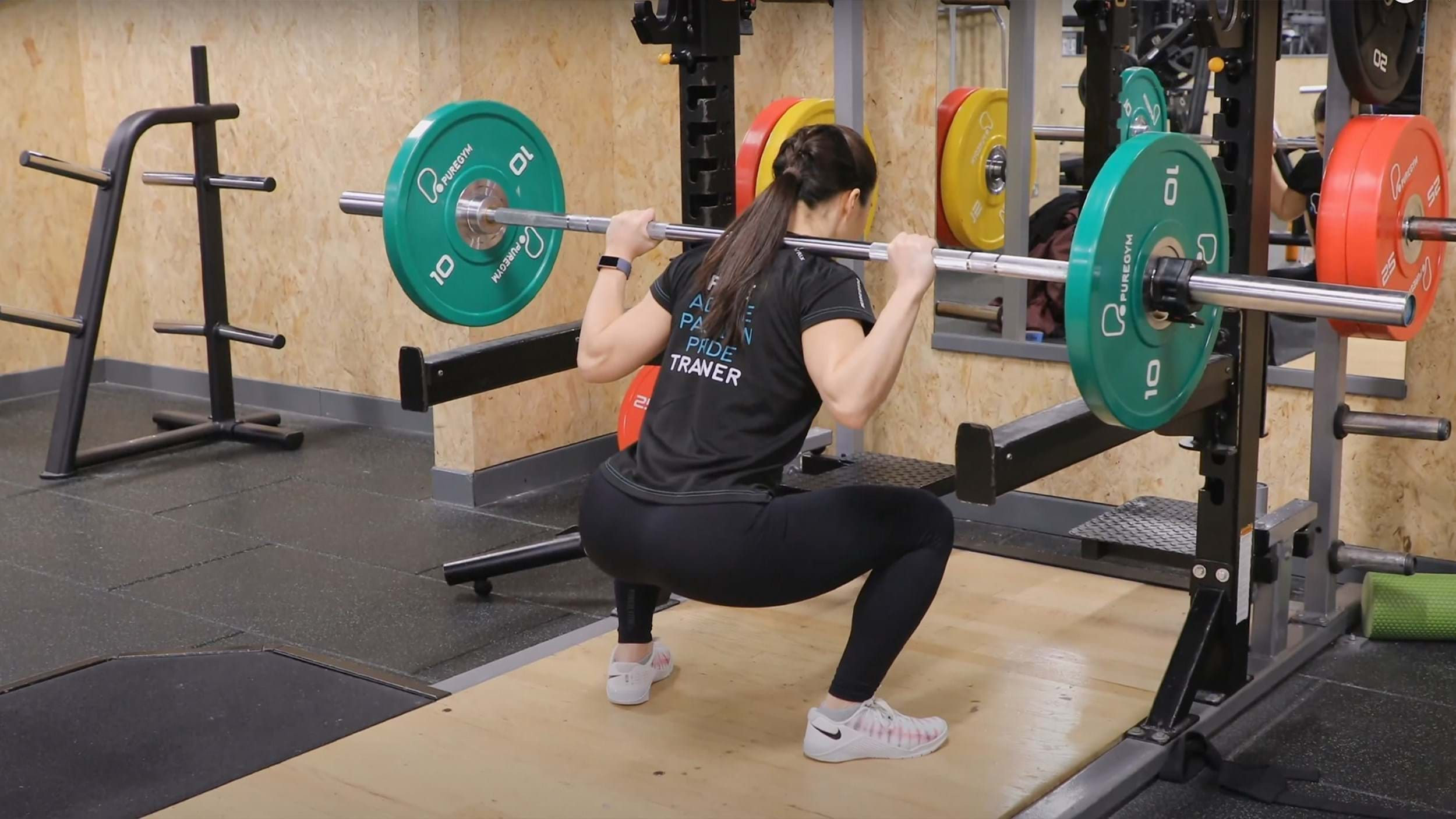Sumo Squats
What Is A Sumo Squat?

The sumo squat is a squat variation that helps to target additional muscles due to its wide stance position. While it still hits the glutes, hamstrings, quads, and calves, this squat also emphasises the adductor muscles situated in the inner thigh.
The sumo squat can be performed utilising varying pieces of equipment, from dumbbells to barbells and sandbags. If you're new to squatting, bodyweight sumo squats can help in understanding and mastering the movement pattern of a squat as well as building lower body strength.
Sumo squats can be performed anywhere making it suitable for a home or gym workout. We'd advise starting with bodyweight or dumbbell sumo squats before progressing to using a barbell.
Check out some other squat variations: goblet squats, split squats, hack squats, Bulgarian split squats, overhead squats
Commonly Asked Questions On Sumo Squats
Sumo squats target the lower body muscles, including the glutes, quads, calves and hamstrings. Due to the wide stance position, sumo squats also target the adductor muscles which are typically neglected by other squat variations.
Depending on which equipment you combine with your sumo squats, you may also have some engagement from your back muscles and core muscles to ensure stability and coordination throughout the movement.
Sumo squats don’t necessarily place greater emphasis on the glutes than other squat variations, but they do target the adductor muscles which are often missed out. The adductors are positioned in the inner thigh and training them can aid with hip mobility to aid other lifts.
Sumo squats are neither better or worse than regular squats and both can be utilised into a training programme should you wish to include them. Many may have a preference as to which squat variation they prefer, and we’d advise choosing your favourite to ensure adherence and progression.
Sumo Squat Tips
The stance of a sumo squat requires the feet to be placed wider than shoulder width apart with the toes slightly externally rotated so they are pointing outwards. The sumo stance may allow you to lift greater weight due to the reduced range of motion. Some people find this stance more comfortable than regular stance squats due to their anatomy and ankle mobility.
Sumo squats are a great exercise to progress as you can start from body weight and slowly work your way up to using a barbell!
How To Do A Sumo Squat
Adopt your squat stance by taking a wide stance, outside of shoulder width apart. Once you’ve found your foot position, slightly externally rotate your feet so that the toes are pointing outwards.
Start the squat by simultaneously pushing your hips back and bending at the knee.
As you bend your knees push them outwards to ensure they do not cave inwards.
Squat down until your thighs are parallel, or just below with the floor.
Reverse the movement by pushing through both of your feet. Try not to just push through your heels, but instead thinking about pushing the ground away with the entirety of both feet.
Push through your feet until you’re standing tall, maintaining a soft bend in the knees. Stand tall with a slight squeeze in the glutes but try not to push your hips too far forward, as this can place unnecessary pressure on the lower back.
If you’re not sure if any of the above exercises are suitable for you, please consult your doctor before you start it. Need guidance on how to perform the exercise? Ask a personal trainer at your gym.